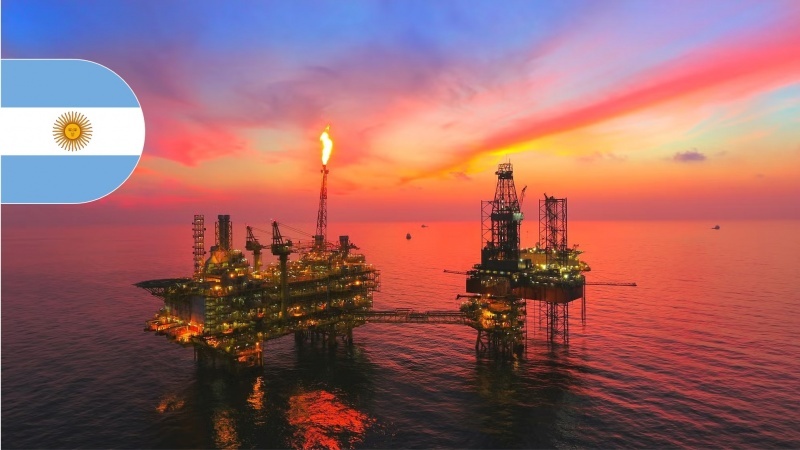Pars Today's Iran and world news package
Britain, Israel seek millions of barrels of oil in the Malvinas; Is Argentina learning from Mauritius?
-

Britain, Israel seek millions of barrels of oil in the Malvinas; Is Argentina learning from Mauritius?
Pars Today – The Malvinas Islands, or as the British call them, the Falklands, have long been recognized as one of the most complex and protracted territorial disputes between Argentina and Britain.
The Malvinas Islands, occupied by Britain since the 19th century, are considered an inseparable part of Argentine territory. According to Pars Today, the complex issue of sovereignty over these islands has strained relations between Britain and Argentina for decades, particularly after the 1982 war. In recent years, tensions have escalated as London granted licenses for oil drilling in the waters surrounding the islands.
The Sea Lion oil field is seen as the key to tapping into the Malvinas' massive oil reserves. However, Argentina has condemned any exploration or extraction in the region. Located 136 miles north of the Malvinas, independent assessments indicate that the recoverable oil volume has increased from 791 million barrels to 917 million barrels, equivalent to twice the annual production of the entire North Sea.
Despite a ban on new oil and gas licenses following the Labour Party's rise to power in Britain, the local Malvinas government has approved oil production, asserting the territory's autonomy in managing its natural resources. Local authorities claim the ban does not apply to the Malvinas, as the islands are self-governing in all matters except foreign policy and defense.
According to The Daily Express, the project, costing over £3 billion, is a joint venture between British company Rockhopper Exploration and Israeli firm Navitas Petroleum. Rockhopper holds 35% of the shares, while Navitas controls 65%. Rockhopper has announced plans to extract 532 million barrels of oil from the field, a 312-million-barrel increase from previous estimates, with much of the remaining reserves potentially recoverable in future operations.
Argentina’s reaction
During the presidency of Alberto Fernández, Argentina filed a complaint against Navitas Petroleum for illegal activities on its continental shelf. José Cruz Campagnoli, an Argentine political analyst, criticized the "illegal" permits issued by the local Malvinas government, which he calls the "illegal Kelper administration", and noted that Argentina’s Energy Ministry had banned Navitas’ operations in 2022.
He also pointed to the silence of Javier Milei, Argentina’s right-wing president, in international forums, calling it a sign of collusion with foreign powers to undermine national sovereignty.
A new opportunity to reclaim the Malvinas?
Another recent development in Argentina is Britain’s decision to return the Chagos Archipelago to Mauritius. Argentine political opponents have cited this as a legal precedent for reviving Argentina’s sovereignty claim over the Malvinas.
Guillermo Carmona, former Minister of Malvinas Affairs, called the move a sign that sustained diplomatic pressure can force Britain to retreat. However, he lamented that Milei’s government has not followed this model, instead weakening Argentina’s position by accepting opposing arguments and signing agreements contrary to national interests.
Conclusion
The Malvinas Islands were seized by Britain in 1833, at the height of British colonial expansion. Today, London, relying on its claimed sovereignty, not only asserts control over much of Antarctica and regional fisheries but also reinforces its colonial dominance by exploiting oil and gas resources in the surrounding waters.
Britain has consistently refused to negotiate sovereignty over what it calls the Falklands, citing the self-determination of the islands’ 3,500 inhabitants (mostly British citizens). In a 2013 referendum, 99.8% voted to remain under British rule.
However, Argentina, as the historical owner of the islands, continues to demand their return through diplomatic and legal means. The Malvinas’ strategic location and energy resources have made it a key focal point in contemporary geopolitical conflicts.
MG/ME

